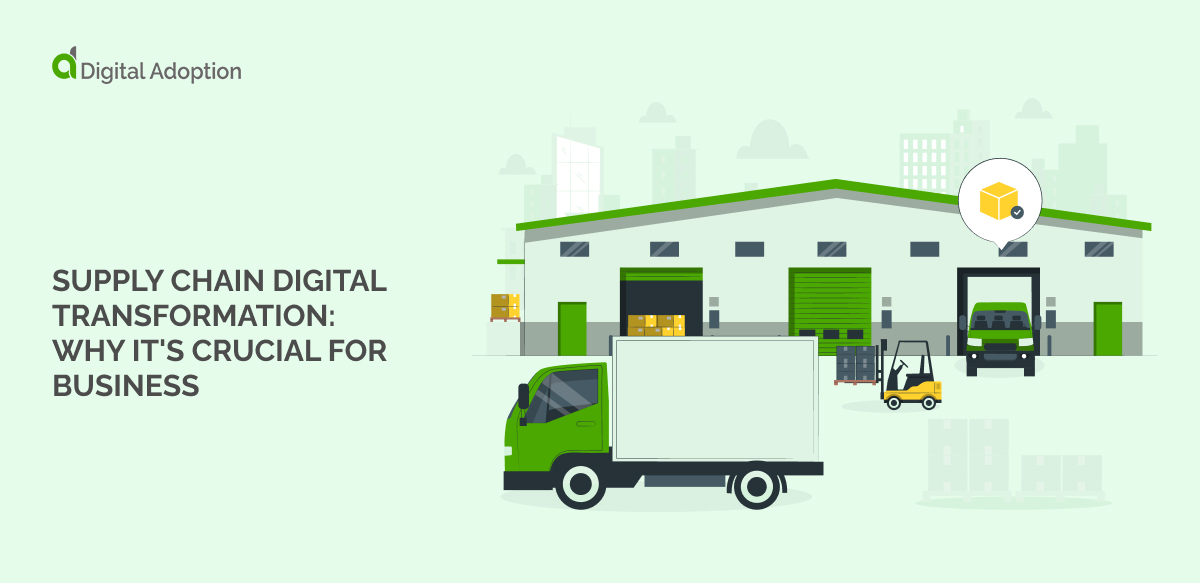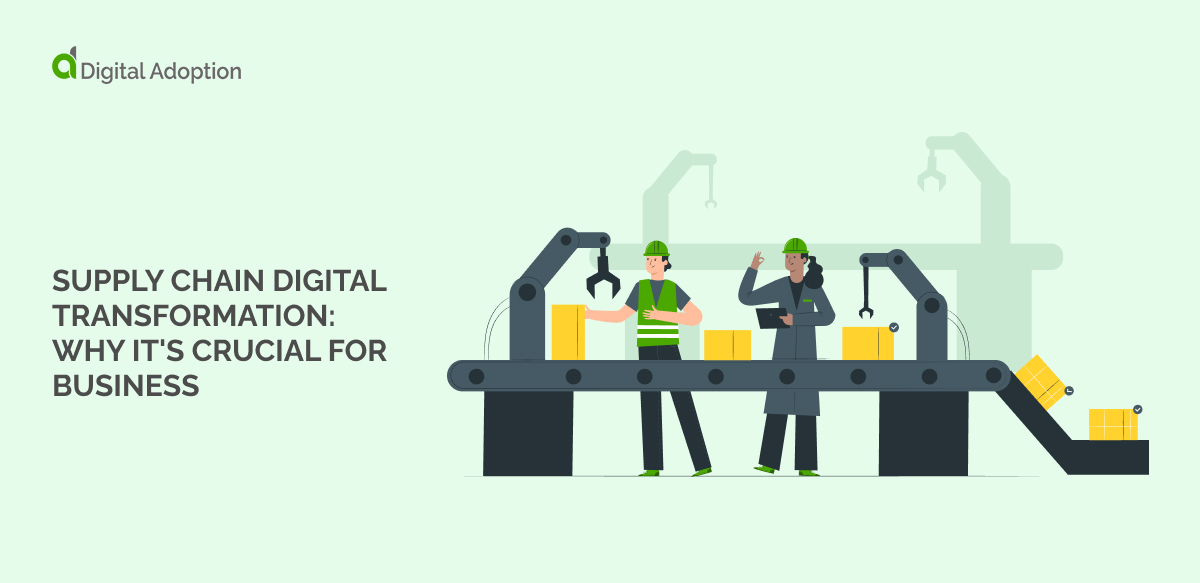Three quarters of companies fail at digital transformation.
More than that actually — 84%.
If you’re reading this, there’s a chance you already know why. Successful digital adoption is the key to digital transformation.
And experts agree.
Digital marketing influencer Lilach Bullock says it best:
“Adapting to new technology and fully leveraging its features is imperative to the modern organization and it is what leads to digital transformation.” Forbes
4 experts who agree that successful digital adoption must be top priority before 2020
- Philip Kushmaro — Contributor to CIO.com, founder of PKDMA Inc, and Microsoft-certified IT professional
- Manish Dudharejia — Founder & President of E2M Solutions Inc, industry commentator, Contributor to business.com and Entrepreneur
- Johann Berlin — CEO of TLEX Institute North America, advisor, columnist, keynote presenter, and member of Forbes Coaches Council
- Lilach Bullock — Forbes Contributor, top digital marketing influencer, keynote speaker, and industry commentator
1. Philip Kushmaro
IT expert Philip Kushmaro wrote back in November about the importance of focusing on digital adoption.
“Convincing the leadership at your organization that you need to ‘go digital’ is one thing,” he says. “Actually getting everyone to use the platforms, tools and services you select is another.”
Organizations are spending millions on fancy new technology in an effort to keep pace with the digital world, only to miss ROI completely. Kushmaro says that organizations don’t do enough to justify the technology and highlight its value to users.
In other words, the users are forgotten. But that’s not the only reason adoption fails. “When companies do not have a clear view of what they are hoping to achieve,” he says, “it is difficult to engage others to adopt a new tool.”
“Similarly, a lack of support from the C-level and management will also likely stop digital adoption straight in its tracks.”
This could have catastrophic repercussions for the business.
“A lack of digital adoption can seriously cripple a new implementation, and it can result in thousands and potentially millions of dollars lost in the long term.” Philip Kushmaro, CIO.com
2. Manish Dudharejia
Industry commentator Manish Dudharejia agrees with Philip Kushmaro.
He writes: “There cannot be digital transformation without leaders who have mastered the ins and outs of digital adoption and are able to help others do the same.”
Referring to a recent IDG report, Dudharejia argues that leaders need to take responsibility for the part they must play in digital transformation.
“Leaders will need to step up and understand the important role that they play in supporting a tech-centric culture that actively embraces digital transformation.” Manish Dudharejia, Entrepreneur
Dudharejia goes on to say that having cutting-edge technology is becoming a necessity in today’s data-driven business climate.
However, it’s “your ability to understand the implications of adoption and the best ways to implement it” that are crucial.
3. Johann Berlin
CEO and member of Forbes Coaches Council, Johann Berlin, recently wrote an article entitled ‘Hacking The Human Side Of Digital Transformation’.
It investigates the issue we all have to change, even when it’s beneficial. According to neuroscience, our brains are hardwired to maintain safety as the top priority — often called the “safety 1st principle.”
When employees perceive digital change as a threat, “they may fall into the trap of being defensive, protective and closed,” right when they need to be receptive and open.
This is why organizations must develop a user-focused digital adoption strategy.
Berlin also mentions how critical organizational culture is in successful digital adoption. “Rewarding curiosity can cultivate learning mindsets,” he says, “which are vital to being open to change and finding new possibilities.”
4. Lilach Bullock
Marketer Lilach Bullock reminds Forbes readers that successful digital adoption is about turning digital tools into assets, whether for employees or customers.
She says, “adapting to the latest technologies is extremely important from both points of view”. […] The issue is, while people are increasingly more tech-savvy, that doesn’t mean they’re ready to leverage fully any software you put in their hands.”
Because when we talk about digital adoption, we mean achieving a state where digital tools are leveraged to the fullest extent. (WalkMe)
Digital adoption is not simply usage. Far from it. Because people use so many digital tools nowadays, there’s precious little time to understand each one fully.
“People use so many digital tools on a daily basis that it can become quite difficult to keep up and really spend the time getting to know what a tool can do for them – whether they’re customers using one of your new digital apps or employees using a tool provided by the organization.” Lilach Bullock, Forbes
That’s why special attention must be given to adoption. It’s not enough simply to put the technology into users’ hands. You must “hand-hold them” through the adoption process.
In summary
If you forget everything else, there are two things you must remember: Successful digital adoption is a prerequisite of digital transformation; and businesses that don’t adapt to the digital world will not survive.
So while experts may argue about what digital tool or change model is best, there are some things upon which they can all agree: prioritize digital adoption to secure your business future.













